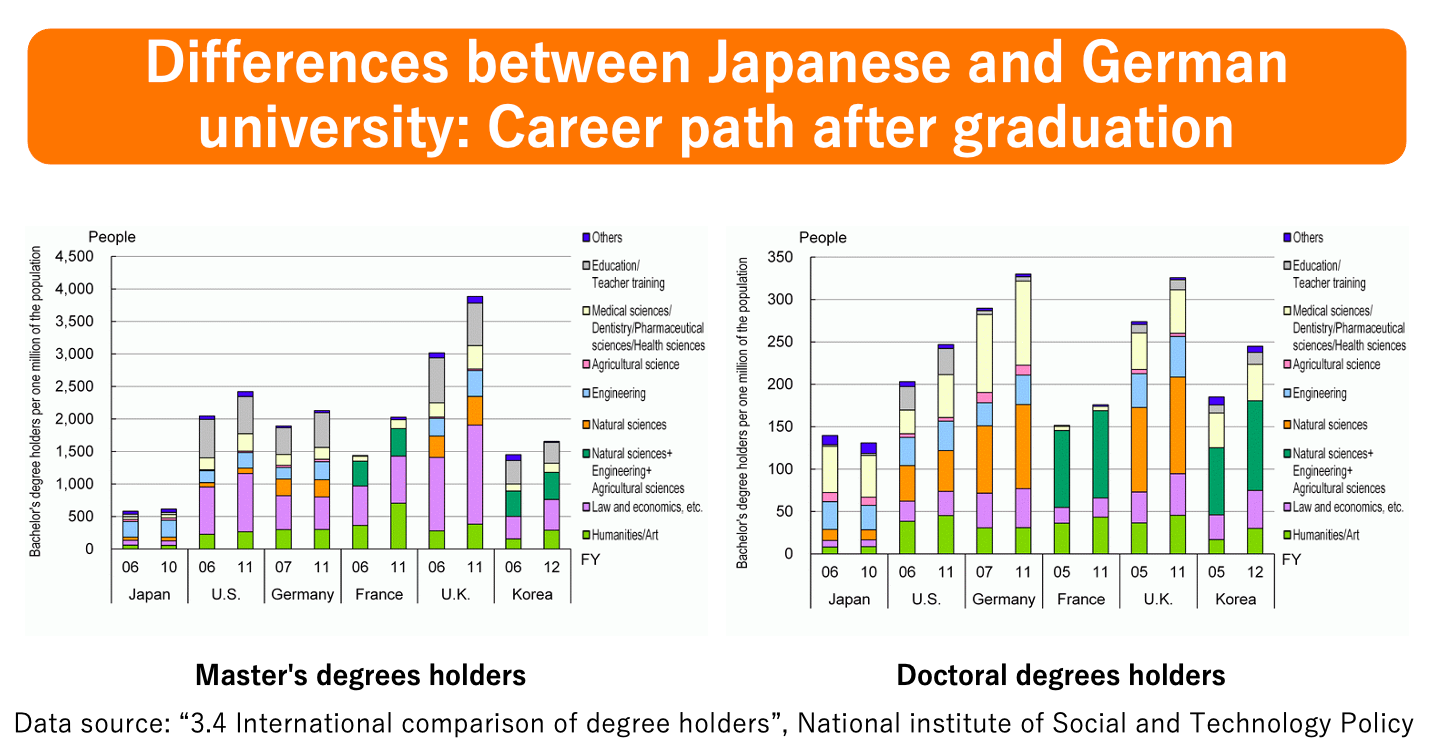Interview with Dr. Matthias Schlegl
〜Dr. Matthias Schlegl (Major: macroeconomics, international finance) 〜
大学に進学しようとする人にとって避けられないのが学部選び!そこで、今回は経済学部の教授であるマティアス・シュレーグル教授に経済学とはどういった学問なのか、大学進学の際に重要なことなど、学部選びに役に立つことをお聞きしてきました。また、ドイツの名門ミュンヘン大学での大学生活、さらにオックスフォード大学やカリフォルニア大学バークレー校でのリアルな体験についてもお聞きしてきました。経済学部に興味がある方、留学に興味がある方必見の記事となっています!
(今回の記事は英語での記事となっています。)
Contents
Part 1 "Fascination with Economics"
- Differences between Microeconomics and Macroeconomics
- What is International Finance?
- Attractive points with Macroeconomics and International Finance
Part 2 "Japan's Lost Decade"
- Current Research
- Bank of Japan's monetary policy
Part 3 "Reality of Foreign Universities"
- Differences between Japanese and German Universities
- Common characteristics of students at high-level universities
Part 4 "Don't be afraid and Don't be shy"
- Messages to high school students and university students
(Interview Date: July 28th, 2022)
Differences between Japanese and German universities
You graduated from University of Munich in Germany and also studied at Oxford University and Berkeley University. From these experiences, what is the difference between a Japanese university and German university.
Dr. Schlegl: I think there are three major differences between them.
First, German university life is very disorganized and different from Japanese university life. In Sophia University, for instance, there are many student circles and student sports clubs.
In Germany most activities are arranged privately. So, it means, in Munich University, for instances, there is not so many students organization or student sports team societies. In England and America, there are student societies, but German university is quite different. If you want to play soccer, you can either join private soccer team or you go to university sport event. But it's more voluntary on a come as you go bases. There is no circle that regularly meets for soccer. So, you have to organize this by yourself. Maybe you have some friends, you can join some club together, but it's really decentralized and privately organized.

When I was a student, I joined a football team just for fun. There were a lot of members who were not from university, but who were already working. I think that the idea of this system is to have a more equal society. People who go to university still have contact to people who don't go to university. You don't want to separate university people from people without university education. By having sport teams privately organized, we can mix university people and people who don't go to university. In other word, different layers of society can come together.
Activities at Germany universities mostly involve attending lectures, attending seminars, and meeting people in classes. But you have to organize the social activities by yourself. It's not related to university. That's really different university life from a Japanese university. When I was a student, I was living in a student dormitory in Munich, so it was easy to organize activities with people in the dormitory. Sometimes, my friends play with other people so I could join them as well. It was quite nice. In Japan, I think that everything is organized within the university. That's kind of separation, but it gives students a strong sense of identity with their university.

The second difference are the incentives for students. The German labor market works differently from the Japanese labor market. German students usually apply for jobs towards the end of their study. In the last semester, they apply for jobs because job opening are posted throughout the year. Companies are looking throughout the year for new members. And companies care a lot about the grades at university. They don't so much care about your major, but companies want top 5~10% of the class. Consequently, the reputation of your university is less important than in Japan. Like, even if you go to a smaller university in Germany, as long as you’re still among the top 10% of your class, you have a good chance to get a good job. Maybe, being top 10% of your class in a lesser known university is better than being not so good in a well-known university. Therefore, student have strong incentives to get good grades and they study very hard.
What matter in Germany for finding a good job is how good you are at university. However, I think that in Japan, university grades are not valued very highly in job hunting. Because job hunting starts much earlier, companies take university grades not so seriously. But this gives kind of bad incentives for student to not take studying so seriously. I think this is a second big difference.

The third difference is the career path after undergraduate degree. In Germany and America, there are many more students who want to continue university after the Bachelor studies. I think in Japan most students just go to work. But in Germany, many people continue with master degrees or even PhD, even if they don't want to become professors. They do a PhD but then work for some company. So, the share of students doing graduate school and a PhD in Germany is much larger than Japan.

Common characteristics of students at high-level universities
You had studied at University of Munich, University of Oxford, and University of California Berkeley. What do students at these high-level universities have in common?
Dr. Schlegl: They were ambitious and very hard-working, particularly Berkeley and Oxford students.
Their university life is very intense. Either you work for your studies or you do some activities, there was virtually no free time. It sounds bad but it's not so bad. When I studied in Germany, university life was not so tough for me. I was like I can watch some movies or videos. I had a lot of free time.
But in Oxford or Berkeley, university life was so intense that I was so busy with studying, circle events, and going out for drinks. I almost didn't have any free time. So, university life is very intense because competition among students is very tough, and materials are very complicated. All of the students are very ambitious, they want to know the material very well, and they want to be the best in their class. So, they are very hard working. In addition to that, people are extremely self-confident. People never said this is too difficult. Students are like "I can do this". Even if the materials were too difficult, people are confident that they can deal with them. I think these three characteristics are quite common among students in these university.

Why these students have these three characteristics? What factors make them to have these three characteristics?
Dr. Schlegl: Many factors come into play. First of all, I don't want to generalize that.
One of the factors is the family background of many students, I think. Their family background encourages them to be ambitious and self-confident. In case of many I met, their parents also went to university and were working in a very high-level job. Ever since they were children, they were pushed by family, and they have a lot of exposure to high-level universities or high-level positions in society.
I think the way you grow up is quite important. For instance, for me, my family are farmers from the countryside and didn't go to university. So, for me, it was quite difficult to adjust to university life. For example, many of my friends at university knew quite well about arts or classical music. However, my parents never discussed this with me, or we never went to the theater. This was a new world for me and so, of course, you feel less self-confident because you don't know well about how the system works.
I think growing up in a family that gives you exposure to university topics and university background makes you more self-confident and ambitious. But, from my perspective, in order to survive in such a new environment, I have to be hard-working. If I don't work hard, I cannot survive. Because the environment gives such incentive to work hard like you don't want to fall behind other people and requirements are very tough. I think if you don't have such a mindset, it is difficult to enter these universities in the first place.
So, while there are factors beyond your control, it is important to strive to survive in a high-level environment.

いかがでしたか?
ドイツの大学の現実や、世界のトップレベルの大学の特徴が伝わってきたかと思います。ただ、「世界のトップレベルの大学」などの環境面や取り組んでいることの大小などのに囚われず、とにかく力を入れて取り組むということが重要だと言えるのではないかと思いました。
Part 4 ではマティアス・シュレーグル教授からの高校生と大学生へのメッセージをお伝えしていきます。
関連記事
また、この記事も掲載されているokkeという勉強の大きな味方になってくれるアプリの方もぜひダウンロードよろしくお願いします!
- iOSの方はこちら:https://apple.co/3IKMN8x
- Androidの方はこちら:https://play.google.com/store/apps/details?id=com.spesden.okke
最後まで読んでいただきありがとうございます!






















